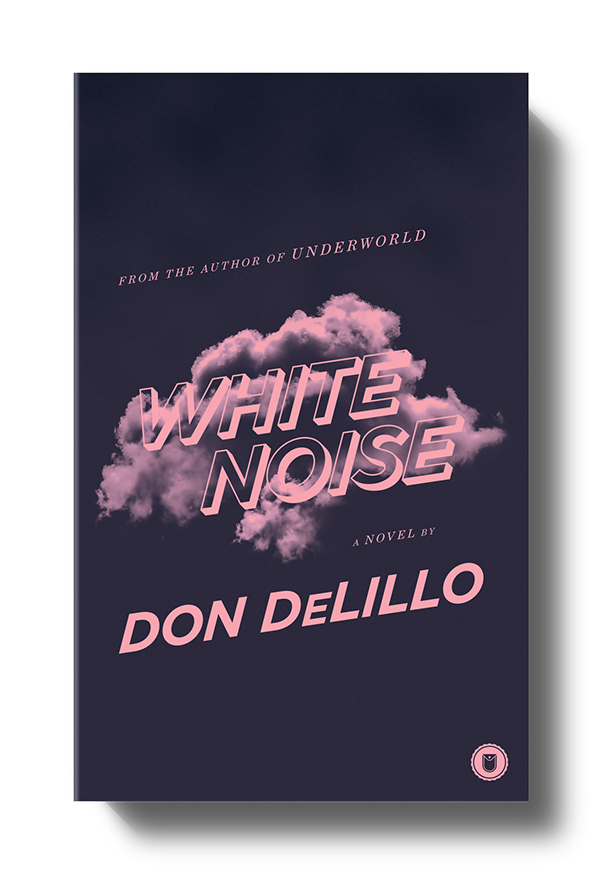
Don DeLillo's White Noise isn't commonly thought of as sci-fi, but I maintain that not only does it fit in the genre, it's one of the more important science fictions. Two elements of the book merit closer attention: the Airborne Toxic Event and the influence of pop culture on identity.
Let's begin with the Airborne Toxic Event. Some critics maintain that science fiction must double as climate fiction because of the threat that climate change has on the future of humanity. In essence, the science behind climate change is probably the most important science for science fiction to consider.
In White Noise, the harmful substance Nyodene D. escapes into the atmosphere as a visible toxic cloud that our protagonist Jack Gladney sees hanging on the horizon. The danger? Exposure to Nyodene D. causes "heart palpitations and a sense of déjà vu." In other words, for most Americans, especially those in the upper middle class or better who have access to the best education, excellent healthcare, and are able to put distance between themselves and the polluted parts and unprivileged people of the country, the problem is diminished; it's out there, ever present and anxiety inducing but not likely to majorly interrupt the regular rhythm of life. For privileged America, environmental degradation, climate change, pollution, and the lot is ignorable or, if you're in the position to profit from being part of the problem, disavowable.
The etymology of nyodene is "nyo," meaning new and "dene," for river. I like to think that DeLillo is making a nod to Philip K. Dick's A Scanner Darkly's substance D, where D stands for death. Nyodene D. represents, then, the presence of invisible and dangerous chemicals existing as a new river, seemingly self-replenishable, ubiquitous, and poisoning the earth and its people with harmful chemicals.
But industrialization is no longer the only thing to blame for the river of environmental degradation. Our society is to blame for the creation of the river of toxicity that envelops us. From the pollution of motor vehicles to the heating and cooling of indoor spaces to the methamphetamine blight that has left a wake of abandoned houses, burned out as a result of meth kitchen explosions. Every year we're faced with the same environmental problems that aren't fixed. We live in a déjà vu of skepticism and anxiety about the dangers we face now and in the future.
Cli-fi is clearly important to science fiction. In my own writing, my last novel Sherman is primarily concerned with the environment. But sf contains many other themes that resonate with contemporary society. White Noise considers one of these: the influence of pop culture on identity.
Pop culture essentially homogenizes culture, eradicating individuality. Each person can choose from readymade fashion and philosophy, politics and religion. No matter what axe you have to grind, you can enter the Hot Topic that is our storehouse of cultural identities and leave cloaked in the ideas and apparel of your particular fancy. Even if you most associate with a counterculture that resists groupthink, a readymade identity exists for you there too.
DeLillo demonstrates the power of pop culture with two professors that study particular personalities: one studies Elvis and the other Hitler. At first, the professorial passion for pop culture appears harmless, a study in history, a study in the forces that create fame and infamy. But Jack Gladney, the Hitler scholar, takes on Hitler's same tragic trajectory, reflecting Gertrude Himmelfarb's warning about Looking into the Abyss; as you gaze into the abyss, the abyss looks back into you, becomes you.
DeLillo takes pop culture's influence on identity to extremes, but the average person's hollowed out existence is no less worrisome. We're all subject to whichever companies or politicians spend the most advertising dollars influencing the media feed this month. We conform either unaware or without care to the forces that manipulate us. We obey.